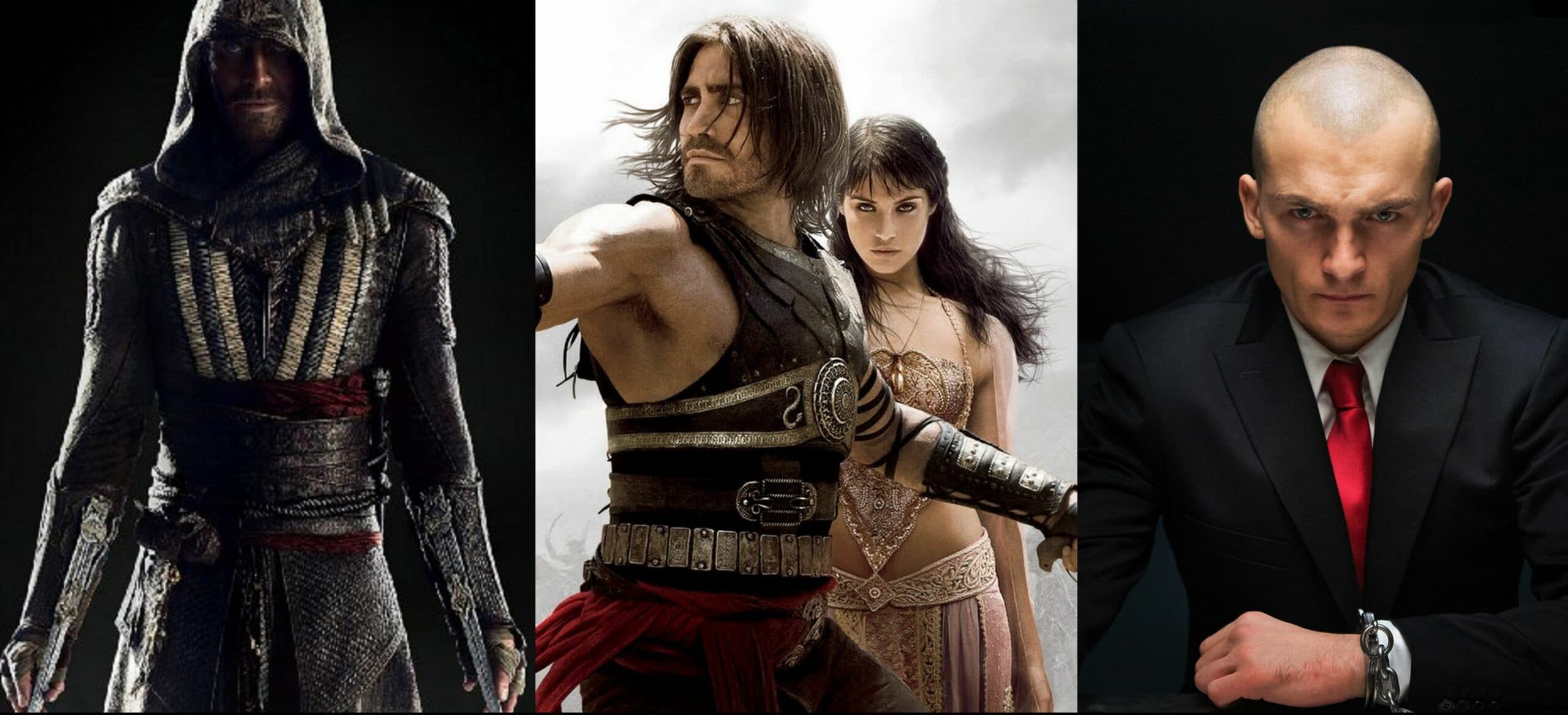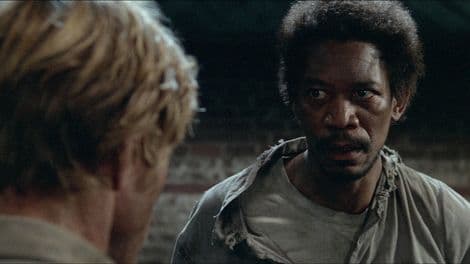Nate Parker: More Than Just a Name in Hollywood
Nate Parker was born on November 18, 1979. He is an American actor. He has made a notable impact in Hollywood. You may know him from various films that highlight his skill as an actor. Let's explore the films that define his career and the stories that they tell.
A Filmography Spanning Genres
Nate Parker's filmography varies widely. He has acted in films across multiple genres, showcasing his versatility. Let's look at some key films in his career:
- Beyond the Lights
- Red Tails
- The Secret Life of Bees
- The Great Debaters
- Arbitrage
- Non-Stop
- Felon
- Pride
- The Birth of a Nation (2016)
These films showcase different roles and stories. Next, we will dive into some significant ones.
The Birth of a Nation (2016): A Bold Directorial Debut
A notable film associated with Nate Parker is
The film examines a painful period in American history. It is based on Nat Turner’s true story. He was an enslaved man who sparked a rebellion in 1831. Parker plays Nat Turner, embodying this historical figure.
This 2016 film shares its title with an earlier film – the 1915 silent movie
Unflinching Look at a Brutal Past
The film offers a stark portrayal of slavery's brutality and Nat Turner's revolt. It is a historical drama that aims to confront America's difficult truths about injustice and oppression.
Fact and Fiction: Weaving a Narrative
Like many historical dramas,
While both the 1915 film and Parker's version share a title and historical period, their source materials differ significantly. The 1915 film drew inspiration from Thomas Dixon Jr.'s 1905 novel
When watching
The Great Debaters: Speaking Truth to Power
Shifting from the intensity of
Henry Lowe: A Character of Depth
Nate Parker's portrayal of Henry Lowe in
Accuracy and Dramatic License
While labeled "based on a true story," films often take liberties for dramatic effect. Nonetheless,
Wiley College vs. USC, Not Harvard
One misconception about
Records show that in 1935, Wiley College's debate team won over the University of Southern California (USC). This was a landmark victory for a Black college team during segregation. While Harvard is recognizable for dramatic purposes, USC was the actual opponent.
Beyond the Lights: Finding Your Own Voice
Shifting to a contemporary film,
This film isn't a historical drama or biopic, but it is character-driven. It’s about self-discovery and real love. Nate Parker portrays Kaz as a supportive figure who helps Noni confront her struggles. The film examines identity, authenticity, and courage against external pressures.
Red Tails: Soaring to New Heights
For war film enthusiasts,
In
with distinction. Its story highlights courage and the battle for recognition and equality despite hardships.
The Secret Life of Bees: Finding Family and Healing
Nate Parker portrays Neil in
The film is notable for its strong cast and Southern backdrop. It explores complex relationships. Nate Parker’s role enriches the character dynamics and stories present in this film.
Arbitrage: High Stakes and Hidden Truths
Nate Parker plays Jimmy Grant, the son of a former driver. After an accident, he gets involved in Miller's deception. The film is a suspenseful journey into power, wealth, and protective instincts surrounding empires.
Non-Stop: Suspense in the Sky
Nate Parker appears as Zack White, a passenger. The movie centers on Neeson's character and the mystery. Parker contributes as part of the ensemble of suspects waiting for resolution.
Felon: Inside the System
Nate Parker plays Collins, an inmate who impacts Wade's life behind bars.
Pride: Swimming Against the Tide
Nate Parker plays Hakim Stokes on the PDR team.
These films showcase Nate Parker's talent. His roles range from historical dramas to thrillers, displaying his dedication to powerful stories.
Delving Deeper into 'The Birth of a Nation' (Both 1915 and 2016)
Let’s revisit
The Silent Film from 1915: A Landmark of Controversy
The original
Despite its groundbreaking aspects, the 1915 film contains deeply racist content. It glorifies the Ku Klux Klan while depicting African Americans derogatorily. Its promotion of white supremacy caused significant outrage upon release.
Based on a Novel and Historical Distortions
The 1915 film is based on Thomas Dixon Jr.'s 1905 novel,
The film intertwines two families: the Stonemans, abolitionist Northerners, and the Camerons, Southern landowners. This framework biases the depiction of the Civil War and Reconstruction, promoting racism while justifying Klansmen actions.
Filming Locations of the 1915 Film
The 1915 production occurred mainly in Southern California. Some filming took place in Los Angeles and Calexico. Forest Lawn Hollywood Hills also served as a filming location for various scenes.
Streaming Availability of the 1915 Film
The 1915
Nat Turner: The Historical Figure Behind the 2016 Film
Now, let’s look at Nat Turner, the historical figure who inspired Parker’s 2016 film
Slave Rebellion Leader: A Brief Biography
Nat Turner (1800-1831) was born into slavery in Southampton County, Virginia. He led the Southampton Insurrection in 1831, one of the most significant slave rebellions in U.S. history.
Turner was religious, believing he was chosen by God for freedom’s cause. He interpreted signs as divine messages. On May 12, 1828, Turner claimed to receive a vision confirming his purpose to lead rebellion.
Religious Beliefs and Motivations
Religion was integral to Nat Turner’s identity and motivations. He served as a preacher deeply connected to his beliefs.
committed to his Christian faith. His beliefs shaped his views on justice and slavery. He viewed slavery as a breach of God's will. Rebellion, for him, became a righteous act against an unjust system.
Turner's religious intensity and his interpretation of biblical scriptures significantly influenced his choice to lead the rebellion. He felt like a divinely appointed leader, meant to free his people from bondage.
Family Life and Separation
Nat Turner's early life included the harshness of slavery, with family separations. In 1823, after Samuel Turner died, the family faced division. Nat was sold to Thomas Moore while family ended up with Giles Reese. These separations likely fueled his resentment against slavery.
Inspirations for Rebellion
Nat Turner's choice to revolt stemmed from various influences. Strong religious convictions, personal brutality experiences, and familial motivations played important roles. He confided in trusted enslaved men: Henry, Hark, Nelson, and Sam. They collaborated to plan the Southampton Insurrection.
Nat Turner's rebellion, though suppressed, greatly influenced U.S. slavery history. It instilled fear in slaveholders, prompting stricter restrictions on enslaved people. It became a powerful symbol of resistance and the unyielding quest for freedom.
Parker: More Than One Kind of Movie Role
The term "Parker" appears in movie discussions, often causing confusion. It refers to different characters and films. Let's clarify the different "Parkers" in cinema.
Parker as a Character: The Master Thief
Initially, "Parker" is a character from novelist Donald E. Westlake, under Richard Stark's name. Parker is the main figure in a series of 24 crime novels. Unlike typical heroes, Parker is a skilled robber, excelling in high-stakes heists. He plans meticulously and abides by a strict criminal code.
Parker Movies and Actors
Over time, adaptations of Westlake's Parker novels emerged in film. At least eight movies feature Parker. Interestingly, Westlake preferred Jack Palance for the role, but Palance never portrayed Parker on screen.
Notable actors have played Parker in various films. Lee Marvin starred in
Parker (2013) Movie: Jason Statham Takes on the Role
In 2013, the film
The movie's plot revolves around Parker getting double-crossed following a heist. He seeks revenge and his share of the money, joining forces with Leslie for retribution. This thriller contains action and heist themes, showcasing Parker's skills and relentless quest for justice in his criminal style.
Parker (1984) British Film: A Different Kind of Parker
Adding complexity, in 1984, a British film titled
When discussing "Parker movies," it could mean adaptations of Westlake's character or unrelated films like the 1984 British movie. It's crucial to consider context to understand which "Parker" is mentioned.
Navigating the Nate Universe: Other Nates in the Spotlight
Nate from Spider-Man: Jacob Batalon
If you think of "Nate from Spider-Man," you refer to Ned Leeds, played by Jacob Batalon. Born on October 9, 1996, Batalon is an American actor famous for playing Ned, Peter Parker's close friend in the Marvel Cinematic Universe Spider-Man series. Although the character is Ned, some fans might informally call him "Nate" or connect the actor to a "Nate" from Spider-Man.
Nate from Euphoria: Jacob Elordi
Another notable "Nate" is Nate Jacobs from HBO's
Nathan Lane: A Stage and Screen Legend
Nathan Lane is a renowned actor celebrated for stage and screen work. He has appeared in iconic films like
On a personal note, Lane has shared his experiences coming out as gay. He recounted telling his mother at 21. Her heartbreaking response was she would rather he was dead. This highlights challenges faced by LGBTQ+ individuals, underscoring the importance of acceptance and understanding.
Big Nate: Animated Adventures
Lastly, for younger audiences, there is "Big Nate." Big Nate is the central character in children's book series and an animated show. A
"Nate" may seem straightforward, yet in movies and entertainment, it can lead to various interpretations. This clarification should help distinguish these diverse "Nates."
True Stories on Screen: Beyond 'The Great Debaters' and 'Birth of a Nation'
This discussion of
Born on the Fourth of July: A Veteran's Story
The Pledge: Fiction, Not Fact
In contrast,
Understanding whether a movie is rooted in real-life events remains interesting.
in reality or from imagination. Both types of films offer valuable experiences. Understanding their basis adds to our appreciation.
Tina Turner: A Musical Icon and Movie Presence
To avoid mix-ups, let's mention Tina Turner, the "Queen of Rock 'n' Roll." Her last name is Turner. She is known for music and acting, not for Nate Parker-related films.
Tina Turner's Acting Roles
Tina Turner had a monumental music career and appeared in films. She acted in
What's Love Got to Do with It: Her Life Story on Film
Tina Turner's life became a subject of the 1993 film
Proud Mary: A Song for the Ages
One of Tina Turner's signature songs is "Proud Mary." It's important to note that "Proud Mary" was *













Responses (0 )